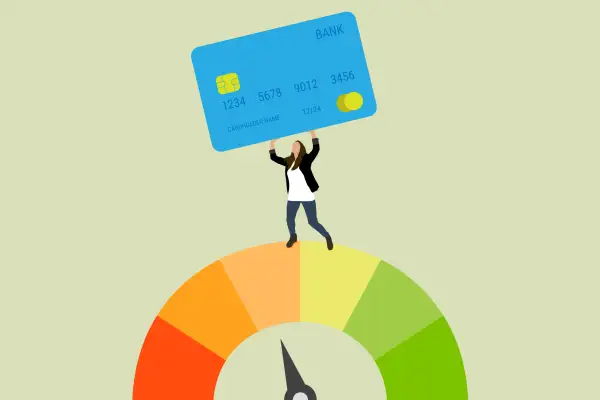Does Carrying a Balance Hurt Your Credit Score?

About half of all American credit card users will carry a balance continuously, or at some point during the year. The other half avoid interest by paying their balance in full every month. How does carrying a balance affect your credit score? It depends on how much debt you have, and the total amount of credit you've been extended. But thankfully, there are steps you can take to control both.
"Amounts owed" is a major factor in your credit score
The formulas used to create your credit score are closely held industry secrets, so nobody will tell you exactly what's in there. However, FICO is one of the leading providers of credit scoring services, and it offers the public an outline of what factors are used to come up with their credit scores, and how much each factor counts. The largest factor, making up 35% of your credit score, is your payment history. But close behind, at 30% of your score, is your "amounts owed." No other factor by itself makes up more than 15% of your score, so your amounts owed is always going to be a big deal.
But what does "amounts owed" mean? This term refers to the total amount of debt that's reported to the credit bureaus, compared to the total amount of revolving credit — including your credit cards and any home equity lines of credit — you've been extended. This factor is often referred to as your debt-to-credit ratio, and the lower it is the higher your credit score will be.
For example, if you have a combined $12,000 in credit extend across all of your revolving credit accounts, and you owe a total of $3,000, then your debt-to-credit ratio is 25%. Although it's not a magic number, most credit experts believe that it's best to have a debt-to-credit ratio below 30%.
So when you carry a significant balance on your credit cards, you can run the risk of increasing your debt-to-credit ratio. But if you carry a very small balance, leaving you with a low debt-to-credit ratio, then it won't affect your credit score much.
As part of roughly half of American credit card users who always avoid interest charges by paying my balances in full, I was shocked the first time I looked at one of my credit reports. The report indicated that I had debt on every one of my credit cards, despite always paying the statement balance in full, on time, every month.
That's because the amount of the outstanding charges on every account was reported to the credit bureaus when each statement period closed. Sure, I sent payment in full to each account by the due date, 21 to 25 days after the statement closed, but my outstanding balances had already been reported as debt. And because I continued to use the credit cards to make new charges during the following statement periods, the new charges would always be reported as as debt on the next statement, even though I'd paid off my old charges. I eventually realized that my accounts would always be reporting "debt" to the credit bureaus, unless I paid the balance down to zero and stopped using the card altogether.
The point is that those who have high charge volumes may have a high debt-to-credit ratio too, even if they don't pay interest. Unless you also have very large lines of credit, and only use a small portion of it, having high statement balances can be a concern even if you avoid interest by paying off your statement balances in full. Most people would not refer to this kind of behavior as "carrying a balance," but your credit card statement balances will always be reported to the major consumer credit bureaus, and affect your credit score.
There are two ways to control your debt to credit ratio. First, you can cut the amount of debt that's reported to the credit bureaus by paying off as much of your balance as possible each month before your statement period ends. That way, the card issuer will report a smaller balance to the credit bureaus.
The other way to reduce your debt to credit ratio is to increase the amount of available credit you have. To do this, you can ask your existing credit card issuers for a credit line increase, or you can apply for new lines of credit.
More on Credit & Credit Repair
Money’s Top Selection Guides for Improving Your Credit
Money’s Credit Repair Companies Reviews |
